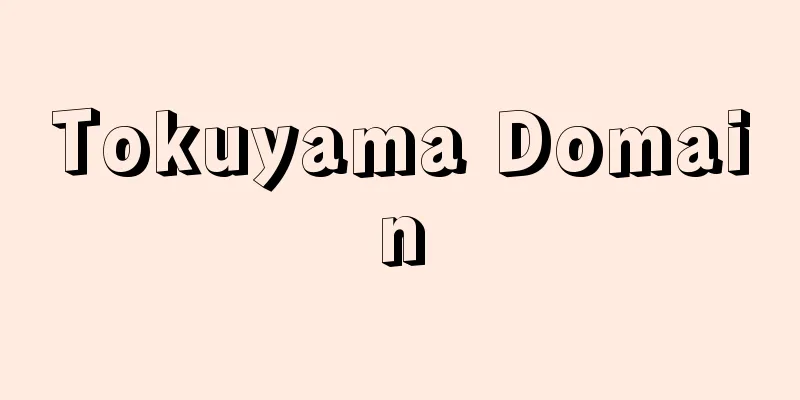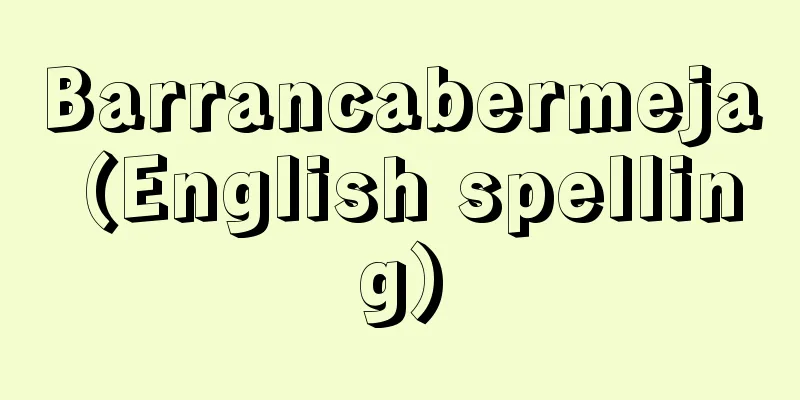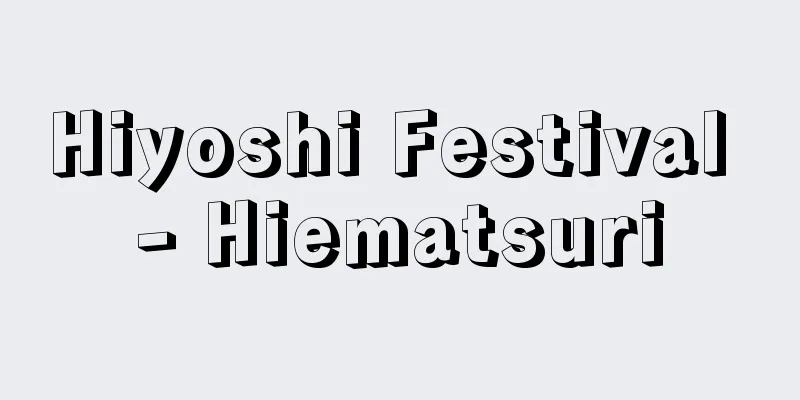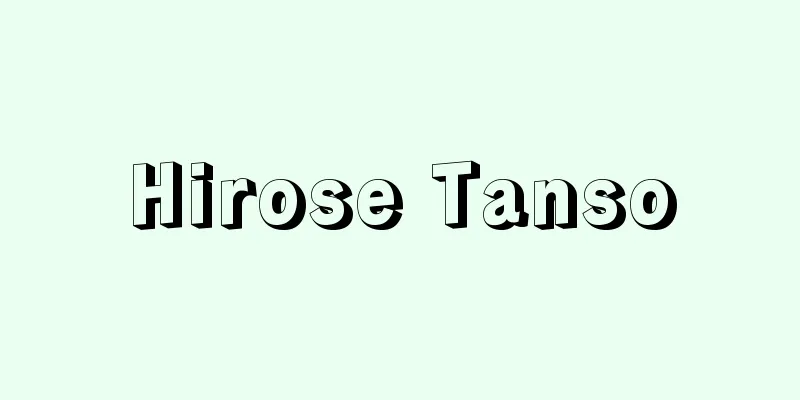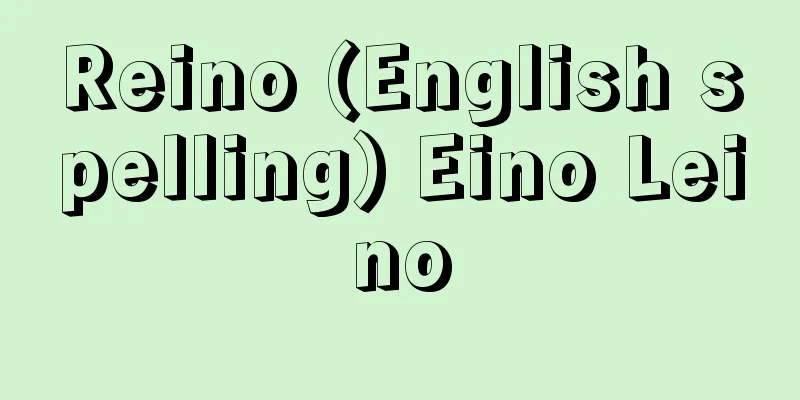Fair Trade Commission
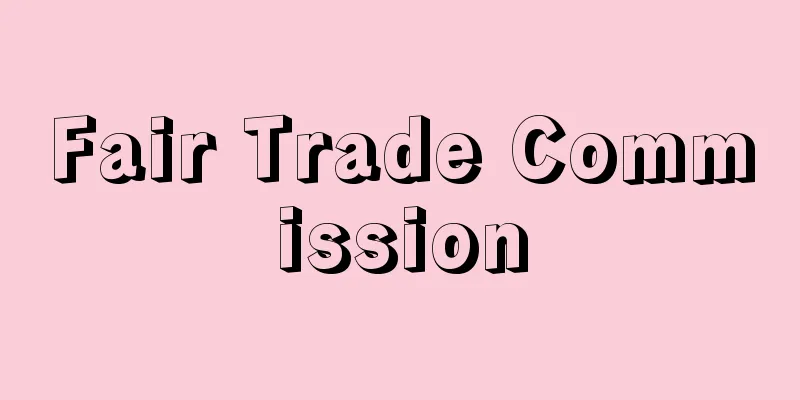
|
A specialized agency responsible for enforcing the Antimonopoly Act (Act No. 54 of 1947, abbreviated as the Antimonopoly Act). It is an independent administrative commission established in 1947 (Showa 22) modeled after the US Federal Trade Commission, and has jurisdiction over the Antimonopoly Act and the Subcontract Act, which is a special law of the Antimonopoly Act. It is abbreviated as the Japan Fair Trade Commission or FTC. It is an external bureau of the Cabinet Office, and is placed under the jurisdiction of the Prime Minister. Its English name is the Japan Fair Trade Commission. Although the JFTC was active when it was first established, it soon became sluggish due to policy changes such as the relaxation of antitrust laws, etc. However, especially after the Japan-US Structural Impediments Initiative in 1989, the importance of competition policy was reaffirmed, and with the trend toward promoting competition policy in other countries such as the European Union (EU), the JFTC's activities have become more active and its personnel have increased. [Ken Kanazu January 19, 2016] Organization of the Japan Fair Trade CommissionThe Antimonopoly Act is a law that aims to promote fair and free competition, exercise healthy market mechanisms, and ensure the interests of general consumers, and its implementation requires political neutrality and advanced legal and economic knowledge. For this reason, the JFTC is a deliberative body consisting of a chairman and four commissioners, all of whom are economic and legal experts aged 35 or older and appointed by the Prime Minister with the consent of the Diet. In addition, to ensure the independence of the chairman and commissioners, their terms of office are set at five years, reappointment is permitted, the retirement age is set at 70, and dismissal for reasons other than those stipulated by law is prohibited. The JFTC has a Secretariat overseen by the Secretary-General, and is made up of internal bureaus consisting of adjudicators (the adjudication system was abolished by the 2013 amendment to the Antimonopoly Act, but in accordance with Article 2 of the Supplementary Provisions of the said amendment, the adjudication system applies to cases in which advance notices related to cease and desist orders and surcharge payment orders were given by March 31, 2015, and as of 2016, five adjudicators have been appointed and adjudications are being conducted), the Secretariat, the Economic Affairs Bureau, and the Examination Bureau, as well as local offices in Sapporo, Sendai, Nagoya, Osaka, Hiroshima, Takamatsu, and Fukuoka, and the Fair Trade Office of the General Affairs Department of the Okinawa General Bureau of the Cabinet Office. As staff are required to have a variety of highly specialized knowledge, it is stipulated that the staff must be qualified as legal professionals, such as prosecutors and lawyers, and also include economists with expertise in economic analysis and experts in electronic evidence collection. The Secretariat's staffing has been increasing year by year, and as of 2015 it stands at 838 (478 in 1991). In addition, when the term "Fair Trade Commission" is used, it can refer to the deliberative body of commissioners, the secretariat, or both. [Ken Kanazu January 19, 2016] Powers of the JFTCThe powers of the JFTC were granted to prevent private monopolies, unreasonable trade restrictions, and unfair trading methods regulated by the Antimonopoly Act, and to maintain and restore competitive order in the market, and it has broad and powerful powers over the economic activities of the people. As the JFTC is an administrative agency, all of its powers are administrative, but based on the characteristics of its powers, they can be broadly categorized into administrative powers, quasi-legislative powers, quasi-judicial powers, and criminal prosecution powers. [Ken Kanazu January 19, 2016] Administrative powersThe JFTC has the authority to issue cease and desist orders for violations of the Antimonopoly Act, and to order the payment of surcharges in cases of violations that are subject to surcharges. It has the authority to collect evidence necessary to prove the facts of individual suspected violations, and can also launch compulsory investigations based on a court warrant (investigative powers). It also has the authority to conduct general basic investigations required for the implementation of the Antimonopoly Act, and has published guidelines to specify corporate activities that violate the Antimonopoly Act and to prevent violations. It also has the authority to accept and approve reports, notices, applications for approval, and plan notices for share acquisitions, mergers, divisions, joint share transfers, and business transfers that are imposed on businesses. [Ken Kanazu January 19, 2016] Quasi-legislative powersDue to its expertise, the JFTC is authorized to independently establish rules regarding matters such as internal discipline, case handling procedures and notifications, and applications for licenses. In addition, the JFTC has the authority to designate unfair trading practices and to designate exempt products from the prohibition of resale price maintenance. [Ken Kanazu January 19, 2016] Quasi-judicial powersOne power that requires special attention is quasi-judicial power. Since the enactment of the Antimonopoly Act, the JFTC has also played the role of an appeals body against exclusion measures and surcharge payment orders that it has issued. If a business entity is dissatisfied with an order, it requests the JFTC to open a hearing, and a JFTC judge determines the appropriateness of the order through a hearing procedure and issues a decision. If a business entity is dissatisfied with the decision, the case moves to a judicial review procedure, but the Tokyo High Court has exclusive jurisdiction, and the JFTC's decision is recognized as having the same effect as a first instance judgment. The hearing system is called "quasi-judicial power" because it is based on a procedure similar to a trial, and it was considered to be the JFTC's symbolic power. Such power was given in consideration of the JFTC's high level of expertise in competition policy, but there was strong criticism from the business community that "the hearing system is like a prosecutor who also plays the role of a judge." The arbitration system was abolished by the 2013 amendment to the Antimonopoly Act, which came into effect in April 2015, significantly reducing the quasi-judicial powers of the JFTC. After the amendment came into effect, cases will be subject to judicial decisions based on the Administrative Case Litigation Act at the Tokyo District Court, which has judges with extensive experience in cases of violation of the Antimonopoly Act. [Ken Kanazu January 19, 2016] Criminal prosecution powerThe Antimonopoly Act provides for criminal penalties in addition to administrative measures such as exclusionary measures and orders to pay surcharges for violations. For example, in the case of private monopolies and unfair trade practices (cartels and bid rigging), officers and employees can be sentenced to up to five years in prison or fined up to 5 million yen, and business operators can be fined up to 500 million yen. However, since the JFTC is an administrative agency, it is not permitted under the Constitution to order the imposition of criminal penalties, and if it determines that a violation is worthy of criminal punishment, it will request the Prosecutor General to file criminal charges. Furthermore, even the Prosecutor General is not permitted to file charges at his own discretion unless requested by the JFTC, and this authority characterizes the JFTC's superiority as a specialized agency. In addition, the 2005 amendment gave the JFTC the authority to investigate crimes, including conducting compulsory investigations based on a court warrant, subject to the filing of criminal charges. [Ken Kanazu January 19, 2016] "New Edition: Outline of the Antimonopoly Act, by Osami Tanihara, 3rd Edition (2011, Chuo Keizai-sha) " "Learning the Antimonopoly Act from the Provisions, by Kazuhiro Tsuchida, Makoto Kurita, Yoshizumi Tojo, and Kuninobu Takeda, 2014, Yuhikaku" " Lectures on the Antimonopoly Act, by Narifumi Kubo and Hiroaki Tanaka, 3rd Edition (2014, Chuo Keizai-sha)" [References] | | | | | | | |Source: Shogakukan Encyclopedia Nipponica About Encyclopedia Nipponica Information | Legend |
|
独占禁止法(昭和22年法律第54号、独禁法と略称)の執行を担う専門機関。1947年(昭和22)、アメリカの連邦取引委員会を手本に設置された独立行政委員会であり、独禁法および、独禁法の特別法である下請法を所管する。略称は公取委(こうとりい)または公取。内閣府の外局で、内閣総理大臣の所轄に置かれる。英語名称はJapan Fair Trade Commission。 創設当初は活発に活動していたが、まもなく政策転換による独禁法緩和などによりその活動は長く低迷した。しかし、とくに1989年(平成1)日米構造問題協議以降、競争政策の重要性が再認識されるとともに、ヨーロッパ連合(EU)など諸外国の競争政策推進の潮流もあり、公取委の活動は活発化し人員も増強されている。 [金津 謙 2016年1月19日] 公取委の組織独禁法は、公正かつ自由な競争を促進し、健全な市場メカニズムを発揮させ、一般消費者の利益を確保することを目的とする法律であり、その運用については政治的中立性、高度な法律的・経済的知識が不可欠である。そのため、公取委は35歳以上の経済・法律の学識経験者から、総理大臣が国会の同意を得て任命する委員長と委員4名をもって構成される合議体とされている。また、委員長・委員の独立性を確保する必要性から、その任期を5年とし再任を認め、定年を70歳とし、法定事項以外での罷免が禁じられている。 公取委には事務総長が統括する事務総局が置かれ、審判官(審判制度は、2013年独禁法改正により廃止されたが、同改正附則第2条の規定により、2015年3月31日までに排除措置命令および課徴金納付命令に係る事前通知等が行われた事件については、審判制度が適用されることから、2016年時点も5名の審判官が任命されており審判が実施されている)・官房・経済取引局・審査局からなる内部部局と、札幌・仙台・名古屋・大阪・広島・高松・福岡の地方事務所、内閣府沖縄総合事務局総務部公正取引室からなる地方機関によって構成される。職員にはさまざまな高度な専門知識が求められることから、検察官、弁護士などの法曹資格者を加えることが規定され、そのほかにも経済学的分析の専門知識を有するエコノミスト、電子証拠収集の専門家などが勤務している。事務総局の定員は年々増強され、2015年(平成27)時点で838名(1991年は478名)である。 なお、公取委という表現が用いられる際は、それが委員による合議体を示す場合と、事務総局、もしくはその両方を示す場合とがある。 [金津 謙 2016年1月19日] 公取委の権限公取委の権限は、独禁法が規制する私的独占、不当な取引制限、不公正な取引方法などを抑止し、市場における競争秩序を維持・回復するために認められたもので、国民の経済活動に対する広範かつ強大な権限を有している。公取委は行政機関であるので、それらすべてが行政的権限であるが、権限の特徴から行政的権限、準立法的権限、準司法的権限、刑事告発権限に大別することができる。 [金津 謙 2016年1月19日] 行政的権限公取委は独禁法違反行為に対して、排除措置命令を下し、課徴金の対象となる違反事件については課徴金納付を命ずる権限を有する。違反が疑われる行為に対し、個別的に違反事実を認定するため必要となる証拠を収集する権限をもつとともに、裁判所の令状に基づく強制捜査に着手(犯則調査権限)することも可能である。また、独禁法運用に際して必要となる一般的な基礎的調査を行う権限を有しており、独禁法に抵触する企業活動を具体化し、違反行為抑止のためのガイドラインを公表している。さらに事業者に課される、報告書・届出書、認可申請書、株式取得、合併・分割・共同株式移転・事業等の譲り受けに関する計画届出書などの受理や認可の権限がある。 [金津 謙 2016年1月19日] 準立法的権限公取委はその専門性から、組織に関する内部規律、事件の処理手続および届出、認可申請などの事項について自立的に規則を制定する権限が認められ、さらに、不公正な取引方法の指定、再販売価格維持行為禁止の例外商品の指定権限がある。 [金津 謙 2016年1月19日] 準司法的権限注意を要する権限が準司法的権限である。公取委は独禁法制定以来、自らが下した排除措置・課徴金納付命令に対する不服申立機関としての役割も担ってきた。事業者が命令に不服の場合、公取委に対し審判開始請求を行い、公取委の審判官による審判手続によりその妥当性を判断した審決が下される。さらに事業者が審決に不服の場合、司法審査手続に移行するが、東京高等裁判所に専属管轄権があり、公取委の審決は第一審判決と同じ効力が認められていた。審判制度は裁判類似の手続に基づくことから「準司法的権限」と呼称され、公取委の象徴的な権限とされていたのである。このような権限は、公取委の競争政策における高度な専門性を考慮したものであるが、経済界から「審判制度は検察官役が裁判官役を兼ねたようなもの」という批判が強く主張されていた。2013年独禁法改正により審判制度は廃止、同改正が2015年4月より施行され、公取委の準司法的権限は大きく後退した。なお改正法施行後は、独禁法違反事件を熟知した裁判官を擁する東京地方裁判所に対し、行政事件訴訟法に基づいた司法判断を求めることとなる。 [金津 謙 2016年1月19日] 刑事告発権限独禁法は違反行為に対して排除措置・課徴金納付命令という行政処分だけでなく、刑事罰の規定を設けている。たとえば私的独占・不公正な取引方法(カルテル・入札談合)の場合、役員・従業員には5年以下の懲役または500万円以下の罰金、事業者には5億円以下の罰金が科される。しかし、公取委は行政機関であるので、憲法の規定により刑罰の賦課を命ずることまでは許されず、違反行為が刑事処罰相当と判断した場合、検事総長に対して刑事告発の依頼を行う。また、公取委からの依頼がなければ、検事総長であっても独自の判断で公訴を行うことは許されず、公取委の専門機関としての優位性を特徴づける権限となっている。 なお、2005年改正により、公取委に対して刑事告発を前提として、裁判所の令状に基づく強制捜査が可能な、犯則調査権限が認められている。 [金津 謙 2016年1月19日] 『谷原修身著『新版 独占禁止法要論』第3版(2011・中央経済社)』▽『土田和博・栗田誠・東條吉純・武田邦宣著『条文から学ぶ独占禁止法』(2014・有斐閣)』▽『久保成史・田中裕明著『独占禁止法講義』第3版(2014・中央経済社)』 [参照項目] | | | | | | | |出典 小学館 日本大百科全書(ニッポニカ)日本大百科全書(ニッポニカ)について 情報 | 凡例 |
<<: Theory of stellar structure
Recommend
Aciagrion migratum (English spelling) Aciagrionmigratum
... A . femina oryzae is found only in the lowlan...
Silver in water - Mizushioiregin
A method of selling salt seen in the Toshu salt fi...
Modern clothing - Kaikafuku
...Despite opposition from the conservative facti...
Economic Commission for Asia and the Far East
…It is one of the regional economic commissions, ...
Elekiteru - Electric
It means a friction generator, or electricity. It...
Warburg Institute
…A research institute affiliated with the Univers...
experience
… It was in Europe in the 16th and 17th centuries...
Pentecost - Seireikourinsai
This holiday commemorates the 50th day after Chris...
Diffusion annealing - Diffusion annealing
...This process therefore takes a relatively long...
Peronismo (English spelling)
An Argentine political movement named after its fo...
Ligularia hodgsonii (English spelling) Ligulariahodgsonii
… [Mitsuru Hotta]... *Some of the terminology tha...
Universal suffrage
An electoral system that grants the right to vote ...
chachalaca
...The nests of the Curassowicz family are made f...
Annotated Commentaries on the Four Books (English: Shisho Shichuu)
A commentary on the Four Books. It consists of fou...
Bathynella inlandica (English spelling)
…[Shigeo Gamou]. … *Some of the terminology that ...
![Shirahama [town] - Shirahama](/upload/images/67cbe599edbe0.webp)
